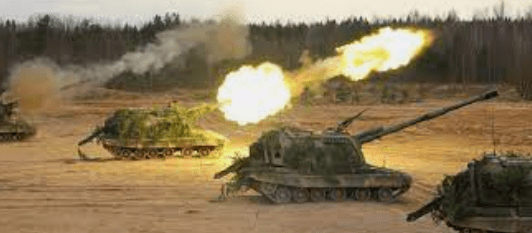By John Pickard
[Note: As this article is being posted, there is a very fast-moving and rapidly-changing situation, both militarily and politically, in relation to the war in Ukraine. What is posted one day may well be completely overturned by events the next. The editorial team will attempt to publish up-to-date analyses of all the important twists and turns in the situation as regularly as we can]
Total war has erupted in Ukraine, and we are now seeing the familiar scenes of large numbers of civilian casualties, bombed apartment blocks and lines of desperate refugees streaming away to escape the worst of the dangers. Socialists all over the world will be expressing their solidarity with the working class of Ukraine, facing the greatest military onslaught in Europe since the Second World War.
We stand with the Ukrainian people, not only because of the humanitarian horror that is threatening, although that is potentially enormous, but because it is a war that is against the interests of working people in that country, in Russia and in the whole world
Greater resistance than anticipated
Following overwhelming Russian incursions in the Donbas region, in the North of Ukraine and along the Black Sea coast Russia is deploying its largest military force since 1945. Military targets have been hit in all parts of Ukraine, including to the far West. After the initial rapid advances, it now appears that Russian forces are meeting greater resistance than they anticipated and that may affect their original war aims. It seems clear and that Russia has complete air superiority and is therefore capable of imposing a no-fly zone over the whole of the country, making the promises of NATO military aid to Ukraine sound more like publicity gestures than concrete plans. In the present circumstances, the importation of arms would not be tolerated by Russia and moreover, they have the means of preventing it.
It is not clear what the war aims of the Kremlin were, but would seem too incredible to imagine that Putin is contemplating a long and bloody war to occupy the whole of Ukraine. The problem would not be so much the conquest of the country – given Russian military predominance that is possible – but holding it. Ukraine is a nation of 44 million people, in a country bigger than France, and keeping such a massive population in check would require the long-term deployment of many more soldiers that Putin has been able to commit to the invasion.
It is possible that Putin is calculating on the occupation of only enough Ukrainian territory to be able to negotiate from a position of strength, perhaps combining that with the imposition of a no-fly zone across the rest of Ukraine. It has been suggested, for example, that he could occupy all of eastern Ukraine to the east of the River Dneiper, running from the border with Belarus north of Kyiv, to the Black Sea in the south, cutting Ukraine in two. That would provide a land bridge to Crimea and include those parts of Ukraine with the highest proportion of Russian speakers.
Occupation of Ukraine would be a nightmare
Putin would demand in any peace deal a permanent ban on Ukrainian membership of NATO, recognition of the separate Donetsk and Luhansk regions and recognition of Russian Crimea. The day before the invasion, it had been reported that the Ukrainian president Zelensky had made a telephone approach to Putin, which was rebuffed, and Putin may feel that the approach was an indication that Kyiv had already felt itself in an extremely weak position even before the invasion.
In the long run, occupation of even half of Ukraine, much less the whole country, would not eliminate the demand of the Ukrainian population for a complete and unitary state and its separation from Russia. On the contrary, that flame will burn brighter still, even under the Russian heel. Putin has taken a massive gamble, therefore, in this invasion. Despite a ten-year occupation and the deployment of massive military resources, Russia was unable to hold onto Afghanistan and was eventually forced to withdraw. As the body bags continued to come home and as that war created such a massive drain on the Russian economy, opposition to the war developed to become an enormous factor in the upheavals in the Gorbachev/Yeltsin years. Holding Ukraine today against the wishes of a hostile population would be far harder than it was for Russia in Afghanistan.
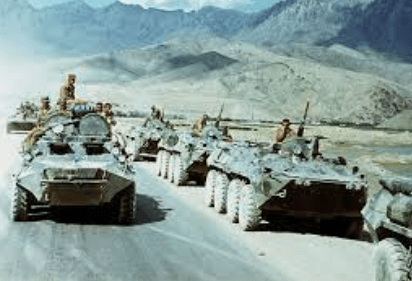
More importantly, the uneasy arrangement between Putin and the Russian oligarchs, whereby he retains supreme political power, and they are free to make vast profits, has been dramatically destabilized. Even if hundreds of billions are stashed away by the Kremlin as a ‘war chest’, the ability of the billionaire-class to move their wealth around the world, buy luxury properties overseas and generally live it up on a global scale is now all in jeopardy. Russian billionaire oligarchs are now international pariahs.
Thieves fall out – will that apply within the Russian klepocracy?
Even within the military and perhaps the FSB (security service), there will be resentment by the professional soldier-caste at having to fight in Ukraine, something for which none of them signed up. It all adds up to an extremely unstable apple-cart at the top of Russian society and that does augur well for Putin’s grip on power in the longer run. We know that thieves can fall out and that is no less true of the kleptocracy that runs Russia as for anywhere else.
Socialists are internationalists and we do not recognise as legitimate so-called ‘spheres of influence’, which are simply an acceptance of involuntary domination of small states by larger states. But that in a nut-shell is Putin’s excuse for war. The invasion was launched because the encroachment of EU domination economically, and NATO domination militarily, towards Eastern Europe, formerly within the USSR or its sphere if influence.
Ukraine has historically been within the Russian sphere of influence and has strong historic and cultural ties with Russia, so the ‘encroachment’ of NATO and the EU are precisely what is at question here. Having seen thirteen former Stalinist satellite states or parts of the former USSR joining NATO, Putin has decided that he cannot accept such a large, potentially prosperous and populous country like Ukraine going the same way as the others. Putin’s intervention in Ukraine, therefore, is not at all in the interests of Ukrainian Russian-speakers. It is no ‘liberation’ struggle, but a matter of the geo-political power, prestige and influence of Moscow. It is also, just as importantly, a means of enhancing Putin’s prestige at home, and silencing his growing number of critics.
In Europe and in the countries of NATO we are now experiencing an orgy of jingoism and flag-waving. Boris Johnson has at long last realised his ambition to play the role of a latter-day Churchill. Biden, already a lame-duck president, two years before the end of his administration, is desperate to appear ‘strong’ in the face of ‘Russian aggression’. These two in particular, are putting pressure on Germany, Italy, France and the smaller EU countries to bolster support for economic sanctions against Russia. Whereas Europe is reluctant to do without Russian gas, which provides 40% of European gas needs (and 55% for Germany), the USA is happy to see a full embargo that would benefit their own oil and gas industry.
Flag-waving and posturing by NATO is mostly for home consumption
But despite all the sabre-rattling and posturing, in fact NATO will be unable to do anything concrete to blunt Russia’s overwhelming military superiority over Ukraine. There is no question whatsoever of direct military support from NATO or the West and it is looking increasingly difficult for even military supplies to be flown in.
The use of British and US forces to bolster ‘defences’ in Germany and the Baltic states are publicity gestures for home consumption. Notwithstanding Boris Johnson’s bluster and his belligerent tone, British military prowess in comparison to Russia is like a pea-shooter against a tank. As for Biden, he may be the Commander-in-Chief of the largest collection of military forces in the world, but he would not think for one moment of intervening to help Ukraine, the USA having just recently managed to extricate itself from its own unwinnable war in Afghanistan and having been obliged to withdraw from a military role in Syria.
Socialists need to express their unqualified opposition to the invasion of Ukraine, but we do not oppose the Russian invasion from the standpoint of the warmongers like the British and American governments. It is deeply ironic that the only comparison to the huge military assault on Ukraine in modern times was the even greater military assault on Iraq in 2003, by these very same hypocritical NATO allies. That was a war of ‘shock and awe’, too, of overwhelming military forces, a war fought like this one on the basis of outright lies and deceit. It was, moreover, a war with a far higher toll of Iraqi military and civilian casualties than the current conflict and it left Iraq as a wasteland.
Wars are an inevitable feature of capitalism
Socialists are opposed to all imperialist wars, the inevitable products of which are deaths, destruction and great economic dislocation, all borne by workers and working-class youth in uniform. Wars are an inevitable feature of capitalism, as much as disease, poverty and economic crises. As the Prussian military theorist, Clausewitz, explained, “War is the continuation of politics by other means”. In modern terms it means that wars arise inexorably from the rivalries between the separate national capitalist classes, played out as a struggle for markets, profit, power and prestige on the international plain.
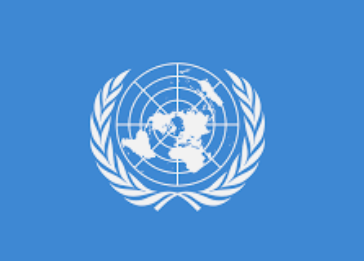
But we are not Quakers either, and we do not oppose war from a moral standpoint, but from what is in the best interests of the working class and the labour movement internationally. We view the development of war and the answer to war from a class standpoint.
We put no confidence or faith in the idea of so-called “international law”. There is no such thing as international law, either based on the UN or any other organisation, except on those few occasions when there is a consensus between the great powers. Where there is no consensus, such as on the status of ‘illegal’ Jewish settlements on confiscated Palestinian land, then there is no law and no legal sanctions are applied. ‘International law’ had no effect on the overthrow of the duly-elected government of Iran in 1953, or that of Chile in 1973; it had no value in the ‘illegal’ invasion of Iraq by the US/UK-led coalition in 2003 and it will carry no weight and no threat against the Russian rape of Ukraine today.
Socialists will not participate in any shape or form with the bandwagon and hysteria of the mainstream media, which reflects the interests of the ruling class. This is true in the case of virtually every element of the national press, in the UK, the EU, the USA and in Russia. We do not give any credence and not a morsel of support to the alliances of capitalist states, NATO in particular. NATO has never been an agency of ‘democracy’ or ‘security’ but has served the diplomatic and military interests of the European powers and the USA.
Most politically significant conflict in Europe since 1945
The tame mouthpieces in the national media are full of the myth of Ukraine being the ‘first European war since the end of the Second World War’. It is certainly the most politically significant military conflict in Europe since 1945, and it has seen the deployment of the largest land, sea and air invasion; but it is by no means the first major conflict.
The press have conveniently forgotten the war in the Balkans, and the fact that twenty-three years ago, NATO was bombing the Serbian capital, Belgrade. There were tens of thousands of casualties in that war, mostly civilians, more than we have yet to see in the Ukrainian conflict. Even in Ukraine itself, since 2014 there have been 14,000 casualties in the long drawn-out conflict along the demarcation line of between Ukrainian-held and separatist-held areas in the South West. The hysterical tone of the press, the flag-waving and the trumpeting of support for NATO are aimed at cowing the British and European populations and preparing them to have to pay for the huge economic fall-out of the Ukraine war.
It is a measure of the degeneration of the Labour leadership that on NATO and on ‘defence’, they are completely indistinguishable from the Tories. They base their whole outlook on the continuation of the capitalist system in Britain and internationally, and so it is inevitable that they will also slavishly follow the military alliances of international capitalism.
The Tories will always have bigger Union Jacks than Labour
The Labour leaders will find, however, that it will win them little additional support from voters. Keir Starmer is wrapping himself in the Union Jack, but when it comes to elections, the Tories, and Boris-Churchill-Johnson especially, will always have a bigger flag and he will wave it more effectively.
Socialists oppose war, but we do not stand on the same ground as the Johnsons or the Starmers. We oppose war from a class standpoint, and the way in which we argue against the war and the slogans we advance will depend on whether we do it in the UK, in Russia or in Ukraine. Left Horizons has no significant readership or support in Russia, but if our supporters were activists there, they would oppose the intervention in Ukraine and demand the withdrawal of Russian troops.
Russian soldiers are working class youth in uniform, and although those fighting in the Ukraine at the moment are professional soldiers, that may not always be the case. Compulsory military service still applies in Russia and conscripts too could be drawn into the quagmire, risking or sacrificing their lives in the interests of Putin and the corrupt clique in the Kremlin.
We would explain that the crisis in living standards in Russia, in the health service, in social services and in all aspects of life is as a result of the capitalist system and the corruption that is now endemic within it. These are the issues that socialist activists would fight on, linking them to the demand to withdraw the troops. All of the economic woes faced before the war – and they were considerable – will be multiplied.
Socialists in Russia will point out that their government had amassed what amounts to a $600bn ‘war chest’ to mitigate the effects of expected Western sanctions. How much better would life have been for Russian workers – and how much more attractive would Russia had been for Ukrainian workers – if this huge treasure trove had been used to invest in infrastructure, transport, health, education and in raising living standards?
Ruble fell to a record low after the invasion
In the first day of the war, the Russian stock exchange fell by 45%, the value of the Ruble against the dollar has fallen to a record low. These are indications of the great sacrifices that will be expected of Russian workers in the coming months and years. In the short term, Putin may make some short-term political gains, but the honeymoon, if there is one, will not last long. (See Michael Robert’s article on the Russian economy here)
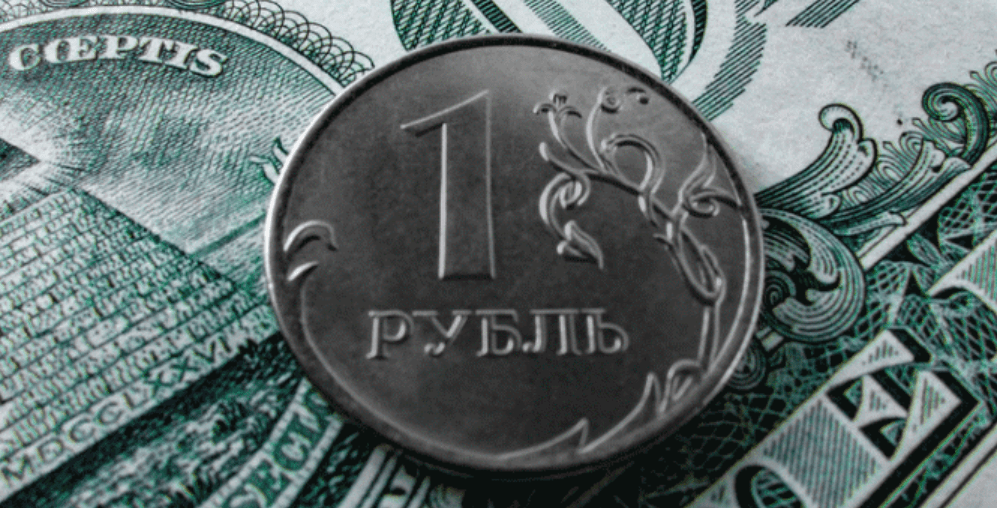
Even in the first day of the invasion, there were outspoken opposition voices and even some small spontaneous protests in Moscow and in other cities across Russia. In the event that there is a prolonged occupation of Ukraine and a significant number of Russian casualties, opposition to Putin will grow. After 22 years in power, as President or Prime Minister, Putin may have thought he was untouchable. He may find that he has made an historic blunder in launching this war.
If Ukrainian workers, including those in the West and non-Russian speakers are repelled by the idea of ‘control’ by Russia and if they have sought closer alignment with the EU and the West, it is entirely the due to the decades of monstrous, totalitarian control of Ukraine under Stalin and in the modern era to bureaucratic control from the Kremlin. Even since the nominal independence of Ukraine in 1991, the lives of workers have been blighted by the domination of Ukraine by a Russia governed by an anti-democratic clique oligarchs, first gathered around Yeltsin and later around Putin.
The Ukrainian economy has been so badly damaged over the years by the joint exploitation of the oligarchs, including Ukrainian oligarch-billionaires, and the Western economies that wages have been extremely low. Even in the Donbas area, it is a sign of how bad things have been that workers there were paid less that workers over the border, so many Ukrainian workers left to work in Russia. Now the living standards of these workers will only fall further.
The Russian model of economy and government holds no attractions
Just as hundreds of thousands of workers from the South West had moved for higher wages in Russia, as many again have moved to Poland, Slovakia, Hungary and Western Europe for the same reasons. Workers are well aware that wages are much higher in the EU than in Ukraine or Russia and, what is more, in the West there are greater social and democratic freedoms that go with it.
Ukrainians have understandably yearned for EU-level wages and freedoms for themselves. As one person interviewed in the Guardian commented (referring to Putin), “…we don’t want to live under his structures, his models.” The Russian mafia-state, in other words, has held no attraction whatsoever for Ukrainian workers and in all probability that is true of ethnic Russians in Ukraine as well.
The government-controlled press in Russia will campaign with Putin for the victory of ‘their’ forces, but socialists will not be blinded by the waves of propaganda and lies. How can anyone take seriously Putin’s interest in the Russian-speaking population of Ukraine, when the Russian-speaking population of Russia is so badly served? Putin has talked about wanting to “de-Nazify” Ukraine but ironically his actions in Ukraine and the stoking up of nationalist sentiments at home will only lead to the growth of neo-fascist groups in Russia.
The $600bn ‘war chest’ could have been the basis of social development
If Russia was a socialist state, or even a healthy democratic state, it could offer support, economic aid and cultural ties to Ukraine. It would base itself on the positive aspects of the cultural ties between the two countries and their shared history, on which basis it would be possible to win the ‘hearts and minds’ of the Ukrainian population. Socialists will demand that the $600bn ‘war chest’ be used for economic and social development, to provide good jobs, wages and a decent living standard for all workers. Such a massive development fund could have provided for mutual infrastructural projects for the benefit of both nations.
The Russian-speaking part of the Ukrainian population has always been more predominant in the cities and the Donbas region, but before the Maidan ‘coup’ of 2013-14, and the subsequent war in the South West, there was no serious movement for independence after the separation of Ukraine from the USSR in 1991. This is because probably even the majority of ethnic Russians considered themselves up to that point as Ukrainians and Russia had no attraction for them.
Socialists in Russia should issue an unqualified call for the withdrawal of Russian forces from Ukraine. It is the sons and daughters of working-class families being up in harm’s way for the benefit of the clique in the Kremlin. Above all, socialists should expose the corruption and hypocrisy of the government, calling for the renationalisation under workers’ control of all industries privatised and handed over to the oligarchs in the past. They should explain the basis of the war as a means of diverting attention at home away from the rottenness and corruption of the clique in power in Moscow.
Martial law will limit the scope of independent workers’ activity
Socialists in Ukraine are in a different position. Many thousands of workers are facing conscription as martial law is declared and military reservists are being called up. All men between the ages of 18 and 60 have been barred from leaving the country. The martial law powers will limit the scope of any independent activity of workers’ organisations, and this in a country where extreme right-wing nationalist organisations still have influence. Without a doubt these ultra-nationalist parties and paramilitary groups will grow in the present circumstances, to the detriment of independent workers’ organisations.
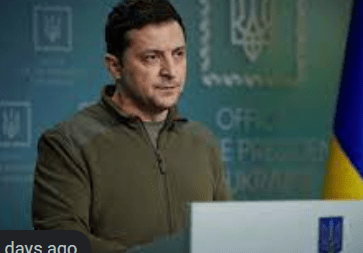
We can draw important political lessons today from the attitude of the Trotskyist Workers’ International League (WIL) towards the Second World War and comrades should read the writings of Ted Grant from that time. The WIL did not oppose the principle of war against Nazism because that was the instinctive view of the best workers. But from a class standpoint they opposed the conduct of the war by the capitalist class, their toleration of profiteering, their pusillanimity. The sacrifices, the casualties, the belt-tightening and even ‘rationing’ were all weighted against the working class and these issues the WIL focused on.
The WIL called for the public ownership of industry, starting with the arms industries, for democratic workers’ control and for democratic arming of the working class as a defence against Nazism. Of course, the ruling class would not tolerate that, and even the Home Guard was rigorously controlled from above. When all else failed, the British ruling class would have capitulated to the Nazis – as the French ruling class did in 1940 – rather than hand power to the working class.
It is not clear how much it is even possible for an independent movement of workers to exist and to campaign in Ukraine. But socialists, where they can put forward slogans and demands, would support the principle of defending Ukrainian independence against Russian occupation – how could they not, when it is the overwhelming instinct of ordinary workers to protect their homes and livelihoods? But they would challenge the means employed by the Kyiv government and the still dominant influence, even in wartime, of the oligarchs and vested interests of capitalism and the rich.
Demand full democratic rights for all minority languages
They would demand that the government arm all workers, on the basis of rank-and-file democratic control, and for fascist and semi-fascist militias to be disbanded. They would demand the renationalisation of all industries privatised in Ukraine since 1991, including the mines and industries of the South East and an end to any profiteering during the war.
Socialists in Ukraine would demand full democratic rights for all national minorities and recognition of all minority languages: Hungarian, Polish and Russian. They would demand full autonomy for Ukrainian regions, even to the point of separation, if that was the wish of the majority of the region’s population. Socialists in Ukraine would not answer the red, white and blue Russian flag by waving the blue and yellow Ukrainian flag.
Rather than base themselves on Ukrainian nationalism, which has included groups which historically have had links with Nazism, socialists would call for international appeals for the solidarity of workers in Western Europe. They would call for appeals for fraternisation to be relayed to Russian forces, calling on them to question why they were in Ukraine at all. Ukrainian socialists would demand, like their comrades in other parts of the former Soviet Union, that the property of the Ukrainian oligarchs is expropriated, that the ‘defence of Ukraine’ should be based on a workers’ Ukraine and not a Ukraine based on profit, greed and not on widespread impoverishment and the oppression of national minorities.
For workers in the labour movement elsewhere in Europe and the world, there will be no direct involvement in the war, but they will suffer a significant fall-out in economic and political terms. Already world oil prices have soared. When the invasion began, crude oil prices immediately jumped to $100 a barrel and there was initially an expectation that it would rise to $120. Gas prices were already due to rise, but the war will accelerate that increase planned rises dramatically.
The workers of the whole of Europe and America will pay for the war
Both of these energy price hikes were partially reversed in subsequent global trading, when it was realised that Russian energy exports were exempted from economic sanctions. Nevertheless, at a time of an unprecedented squeeze on living standards, there will be huge costs for the war in the Ukraine, and it will be the working class in the whole of Europe and the USA who will pay them.
The labour movement outside of Russia and Ukraine will be impacted by the waves of patriotism and jingoism spewed out by the mainstream media. As we have argued in other articles, we do not support NATO in any shape or form. If the British and US capitalist class and others are shouting about sending weaponry to Kyiv, it is not for the sake of the people of Ukraine, but because it is in their interests in term of geo-political influence.
Ukraine, for Western imperialism, was another candidate for membership of NATO and for inclusion in the Western sphere of influence: in other words it is simply another population to be a source of profit for Western capitalism. Had there been any kind of socialist state in Kyiv or even a more radical capitalist state, there would have been no question of military or financial aid from the West. If the IMF was prepared to crush a Greek government that threatened radical measures under Syriza, they would support Russia doing the same to a genuinely radical government in Ukraine, just as the West was happy to see Russian forces prop up the regime in Kazakhstan in January.
For workers elsewhere, the economic cost of the war will be enormous. Economists are now speculating that average household energy bills in the UK will rise to £3,000 a year, pushing millions into fuel poverty. The bump in oil prices may push petrol costs up to £1.60 a litre. It adds up to an incalculable blow to the living standards of the majority of the population
No-one talks about Downing Street lockdown parties now
Apart from the economic cost, the labour movement will suffer a political cost for the war, at least in the short term. Boris Johnson has long wanted to present himself as a new Churchill and no doubt feels his moment has arrived. A lot of the anger and resentment at the Downing Street partying during the pandemic lockdown will be forgotten – for the moment – and he will bask in an orgy of flag-waving and posturing. As John Crace wrote in the Guardian, in the current atmosphere, Johnson only needs to stand up in the Commons “to look good”. The Tories have used the Ukraine crisis as a cover to introduce a £5bn cut to NHS finances and it will not be the last such cut.
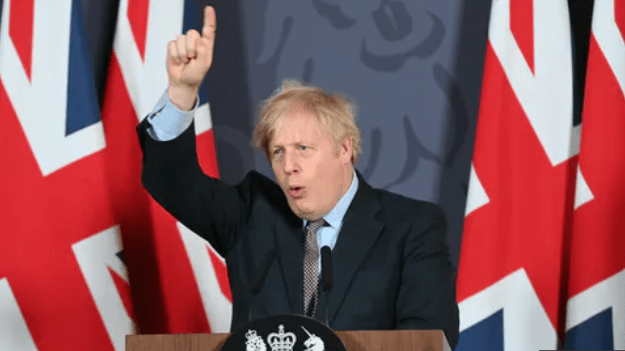
Even the question of a snap election in the midst of a wave of jingoism presents a different perspective to an election in ‘normal’ times. Just as Margaret Thatcher benefitted from the ‘glory’ of the war in the Falklands to swing the election her way in 1983 (although there were other factors), Johnson is capable, with the full support of the right-wing media to exploit the Ukrainian war to do the same. At the very least, the government will be using the issue to increase – probably with the backing of Keir Starmer – spending on defence, again at workers’ expense.
In Germany, the government of Olaf Scholz has proposed a massive increase in arms expenditure – a €100bn rise – by far and away the biggest such increase since 1945, and that will be paid for by German workers. Putin may be demanding ‘less’ NATO, but at great cost to workers in Europe and the USA, he is certainly going to get ‘more’ NATO.
The underlying trajectory of the British economy is unchanged
Part of the political reaction the left will have to face in Britain is the temporary strengthening of the pro-capitalist, pro-NATO wing of the Labour Party. A few left MPs supported the call for ‘peace’ and were bullied into withdrawing their support, an indication of both the ruthlessness of the right and the weakness of the ‘left’.
It strengthens the hand of the right in the short-term, but it will not change the underlying trajectory of the economy and its effects on working class. The imperative of economic life will inevitably push workers and trade unionists especially into confrontation with their own leaders and Labour leaders who are offering them nothing but flags.
We need, therefore, to oppose the war in Ukraine, not only from a humanitarian standpoint, although we are not immune to that, but from the point of view that it directly damages the interests of the working class. Even in the absence of a lead from the labour movement, there will inevitably be a groundswell of opposition to war within the rank and file of the labour movement, as there was before the invasion of Iraq.
January of 2003 saw one of the biggest-ever demonstrations in London against the war that everyone saw coming. It is likely that these kind of demonstrations will be organised again, and all socialists and activists should participate in them and support them. The 2003 demonstration did not change Tony Blair’s mind one iota – he had already pledged British support to George W Bush and only needed a pretext – but that does not mean that the demonstration was not worth organising. It was an expression of revulsion against the planned war that was shared by millions, only a fraction of whom were in London that day. It gave the lie to the idea that the Iraq war was in any way ‘popular’. Socialists should participate and support events of that kind, as they will almost certainly be organised again.
Demand the expropriation of all oligarchs…it’s all dirty money
But participation and support for anti-war demonstrations does not mean that we should be blind to their limitations. The massive 2003 demonstration had no impact at all on Blair and even simultaneous demonstrations in cities around Europe will have no impact on Putin. Rather than appeal for ‘peace’ or call for ‘UN intervention’ or to ‘international law’, socialist activists should demand an end to all arms exports.
If there are going to be ‘sanctions’ on Russia, socialist activists should demand the expropriation of all Russian luxury properties in London and in the UK, as well as industries, media and other properties of Russian oligarchs. It is noteworthy that for all his posturing, Johnson has only imposed sanctions on a few Russian oligarchs. The Russian oppositionist, Alexei Navalny, currently in prison, published a list of 35 Russian oligarchs who have ‘enabled’ Putin. Boris Johnson has announced sanctions against two of them and has taken pains to leave untouched those, for example, who make donations to the Tory Party.
“In Brussels” a Guardian reporter noted (February 25), “there was irritation and a view that the UK was not acting strongly enough against oligarchs such as Roman Abramovich, whose private jet was reportedly tracked leaving Monaco for Russia yesterday.” It took Labour MP Chris Bryant to point out in the House of Commons that Roman Abramovich, the billionaire owner of Chelsea Football Club, was suspected by a secret government report of “corrupt activity and practices”.
Reading from a leaked government document, which the Tories have sat on for nearly three years, Bryant pointed out that “Abramovich remains of interest to HMG due to his links to the Russian state and his public association with corrupt activity and practices” (Guardian, February 25). Bryant called for the seizure of Abramovich’s assets, including his £150m London home. For once, even a right-wing Labour MP has said something with which the left would agree.
Tax-havens could be closed in a week with the political will
Abramovich, like all of the Russian billionaires styled as ‘oligarchs’ were enriched in the Yeltsin years by the theft of state assets through fraud, corruption and sometimes violence. What had been state-owned steel, coal, aluminium, telecoms, transport and other industries found their way into the hands of former bureaucrats and criminals, providing the basis for a corrupt mafia capitalism. This was a process extending throughout Russian and into other former areas of the USSR, including Ukraine and it was a process happily supported at the time by the EU and the USA, in the hope that a capitalist Russia would become a market for Western finance and profits.
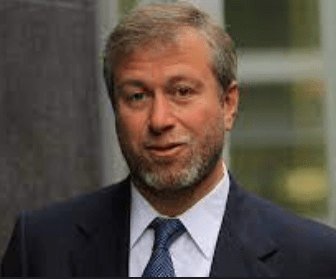
Abramovich’s subsequent statement on Chelsea Football Club was a clear response to Bryant’s intervention. Abramovich has not relinquished ownership of that club but has only distanced himself from personal control…until matters settle down. Labour should demand that all of Abramovich’s wealth, including Chelsea Football Club be expropriated.
When it comes to the properties of oligarchs in the UK, socialists should demand the confiscation of all of their properties and assets; off-shore ‘shell’ companies used to hide stolen wealth should be opened to public scrutiny and tax-havens abolished. So many tax-havens are based in British Crown territories or overseas territories that they could be abolished in a week if there was the political will to do it.
This war is a watershed moment, as was 9/11
London has always been awash with dirty money – it is the ‘money laundromat’ of Europe – and much of it is Russian money. It is a scandal that the flag-waving Labour leadership has not thought to raise any of these issues in the current atmosphere. The standpoint of the working class opposing the Russian invasion of Ukraine is completely different to the standpoint of Boris Johnson, whose ‘sanctions’ do not even undermine the financial support given to his party by rich Russian donors (see article here).
On a global scale, the war in Ukraine, is yet one more illustration of the fact that we live in a period of wars, revolutions and counter-revolutions. The war is a watershed moment, as 9/11 was, and after this nothing will be the same again, in Britain or internationally. Nor will it be the last major convulsion, in an epoch of convulsions, crises and conflicts from one end of the world to the other. We are witnessing a historic decline in the political and economic confidence of the entire ruling class as its grip on power is threatened with every new political and economic earthquake.
The relative weakness of NATO is but one facet of that decline. In the USA, Biden is seen as a lame-duck president, desperate to wave the Stars and Stripes to refurbish his image; the previous President Trump, having been an avid supporter of Putin. There are already divisions with NATO, with key states like Turkey and even Italy not prepared to slavishly follow the White House line. As always, despite the charade of ‘unity’, each separate capitalist class will pursue its own economic interests, if necessary at the expense of everyone else.
It is even in the interests of US oil and gas producers to kill off the rivalry of Russian oil and gas producers, so they will be cheering on the opportunity for sanctions against Russia. With world oil and gas prices hitting record levels, it would mean record profits for exporters of LNG from the USA and the Gulf.
Behind the public shows of unity, NATO states are split on sanctions
There are still divisions among NATO states on the scale of economic sanctions against Russia, holding back at first on banning Russia from the Swift (Society for Worldwide Interbank Financial Telecommunications) payments system, to the anger of Ukrainian ministers. Swift is key to the movement of payments for Russian oil and gas, which will not be included in the sanctions, and it was primarily the German and Italian governments that opposed banning Russia from Swift.
The limitations of the EU and Western sanctions and the clear divisions in interests can be seen in the decisions by the EU foreign ministers last Friday. The Financial Times reported (February 25), “Western nations this week unveiled a barrage of sanctions to combat Russian military aggression, but the list is far from comprehensive and there is little certainty they will put pressure on Vladimir Putin’s government”. According to the report, economists are relieved to note that the measures “will hurt Russia far more than the EU, UK or US”. But, the FT added, “few think they will help bring a swift end to the Russian campaign.”
In summary, as the FT explained, “The sanctions imposed by Brussels, the UK and the US over the past two days have hit Russia’s oligarchs as well as banks, high-tech companies and aircraft makers. But the energy sector and the Swift payments alliance have so far been exempt from the new measures”. “Europe’s problem in imposing economic pain on Russia”, the report continues, “is that the price it is willing to pay is not unlimited. With the bloc dependent on Russia for 40 per cent of its gas consumption, energy is off the sanctions list”.
Since then there concerted pressure was put on Germany and Italy to agree to an international bar on Russia using Swift and that sanction be applied more extensively. But Germany and Western Europe can not do without Russian gas and there will be ‘loopholes’ that allow for the gas to be bought and paid for as normal.
China will be looking at Ukraine and thinking ‘Taiwan’
Then there is the growth of China as an economic and soon, as a military power. This is yet one more element in the declining significance of NATO. Behind the scenes, the Chinese government has probably given a nod and a wink to Putin. On the UN security council, China abstained on a resolution critical of Russia (current chair of the security council), who vetoed it anyway.
The economic sanctions imposed by the NATO states will to some extent be mitigated by a shift of Russian trade towards China. Although China is carefully balancing its interests in world trade with support for Russia, it has pointedly refused to condemn the invasion. Looking at Ukraine, Beijing will be noting the impotence of NATO and will be thinking ‘Taiwan’.
The whole performance in Eastern Europe could be repeated – except on a bigger scale – across the Formosa Straits. The scale of the Russian intervention in Ukraine – a massive invasion, rather than a relatively minor incursion – has taken many commentators by surprise in its scope and ruthlessness, but it is a reflection of the epoch in which we live. The ‘unthinkable’ may have happened in Europe, but an equally ‘unthinkable’ war over Taiwan is also a possibility in coming years.
We live in a period of unprecedented turmoil. When BBC journalists are quoting Lenin, saying “There are decades where nothing happens; and there are weeks where decades happen”, then you know we live in unprecedented times! We need to keep a clear head, analyse the processes at work as best we can and attempt to explain events to the best and most class-conscious workers who are looking to understand them.
The only answer to the threat of war, social dislocation and disintegration is socialist revolution on a world-wide scale. Left Horizons does not base itself on this or that nationalism, but on internationalism and the solidarity and struggles of workers world-wide. We will not be reframing our Facebook profiles in the blue and yellow because our flag stays red.
Trotsky, in anticipating the approaching Second World War, said that the choice facing humanity was “socialism or barbarism”. But in the modern epoch, it is more than that. Such is the rottenness of capitalism and so high are the stakes – not excluding climate change, for example – that the choice before humanity is “socialism or annihilation”. We have to use the tragic events like those unfolding in Ukraine as a spur, to drive us forward to change society.
Posted February 28, 3pm

